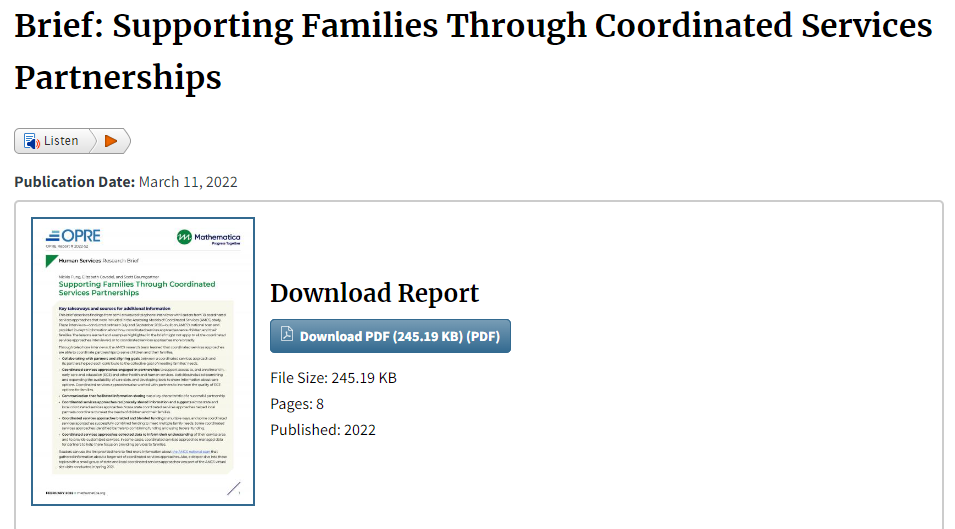A new research brief takes stock of efforts to coordinate early childhood education systems with other kinds of family services including income supports and parent-focused services, often with a two-generation lens. These “coordinated service models” are not yet common, so the researchers interviewed 18 leaders of such efforts around the country, aiming to identify promising approaches to providing holistic support for low-income families. The efforts included both state coordination systems, focused on connecting multiple state agencies as well as local coordination efforts that enhance connections between family-serving nonprofits in a particular region. The authors find that the most successful partnerships are developed with a clear shared goal in mind, which can help clarify each organization’s role and encourage sustainability. Successful models also employed strong communication strategies, including data sharing and collection, and utilized “braid and blend” funding strategies to leverage resources for young children and their families, even if from different sources.

